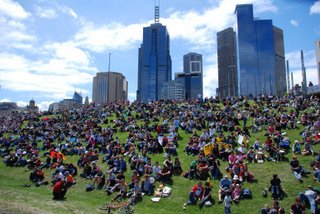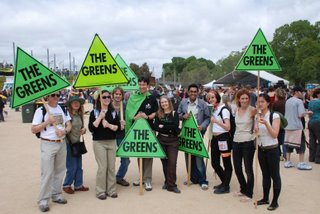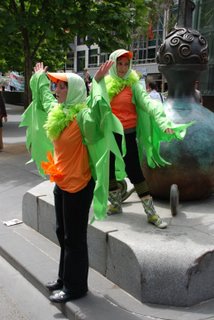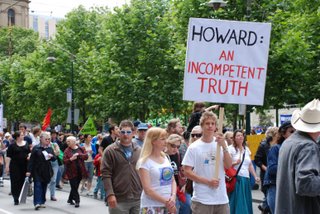Here is an example: Locking up precious forest areas is playing with fire
The Department of Sustainabililty and the Bracks government currently determine forest management practices, not the Greens. Current practices include both significant fuel reduction burning and logging. In addition, much of the forest burnt in this year's terrible fires was badly burnt in the fires of Eastern Victorian alpine bushfires of 2003.
Two major contributing factors to the very bad bushfires in Victoria this year are that:
- Logging has actually increased the fire risk in Victoria by progressively replacing cool temperate rainforest pockets with drier and more fire prone eucalypt forests.
- Climate change has now reduced our rainfall, so the forests are much drier than usual
Next the rapacious logging industry will lobby for "salvage logging" of our burnt forests under the pretext that this is also "good management". However, this will further damage our forests, as the logging will disturb and remove many of the trees before they can regenerate, and will destroy many hollow trees that provide habitat for animals that survive the bushfires.
It is time for the logging and woodchipping industry to get out of our native forests and start using the oversupply of plantation timber that is available. There are enough jobs in plantation-based industries to replace all those involved in the rapidly declining native forest industry.









